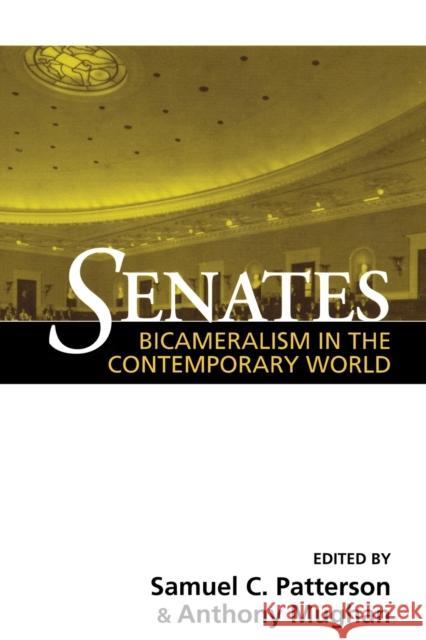Senates: Bicameralism in the Contemporary World » książka
Senates: Bicameralism in the Contemporary World
ISBN-13: 9780814250105 / Angielski / Miękka / 1999 / 304 str.
Nine upper houses are analyzed in this book: the United States Senate, the German Bundesrat, the Australian Senate, the Canadian Senate, the French Senat, the British House of Lords, the Italian Senato, the Spanish Senado, and the Polish Senat. Although about a third of the world parliaments are bicameral, bicameralism has only recently come under scrutiny by political leaders in both stable and emerging democracies. In the United Kingdom and Canada, long-established upper houses are under intense pressure to reform; in Germany and Italy, upper houses have evolved to play a major role in governmental affairs. The U.S. Senate remains a powerful legislative body, but it, too, has lately been the object of reform efforts. Yet little is known about bicameralism; in fact, the upper houses, or senates, have been almost totally ignored by scholars. In "Senates, " editors Samuel C. Patterson and Anthony Mughan fill this gap in the literature of legislative studies by drawing on the knowledge of an international group of scholars whose essays advance our knowledge of modern senates. Each chapter analyzes the organizational structure, constitutional powers, electoral basis, party infrastructure, leadership, decision-making processes, and propensity for change of an upper house. The editors compare a variety of institutional similarities and differences, consider their strengths and shortcomings, and evaluate demands for institutional change. Samuel C. Patterson and Anthony Mughan are professors of political science at The Ohio State University and coeditors of "Political Leadership in Democratic Societies.""
Nine upper houses are analyzed in this book: the United States Senate, the German Bundesrat, the Australian Senate, the Canadian Senate, the French Sénat, the British House of Lords, the Italian Senato, the Spanish Senado, and the Polish Senat. Although about a third of the world parliaments are bicameral, bicameralism has only recently come under scrutiny by political leaders in both stable and emerging democracies. In the United Kingdom and Canada, long-established upper houses are under intense pressure to reform; in Germany and Italy, upper houses have evolved to play a major role in governmental affairs. The U.S. Senate remains a powerful legislative body, but it, too, has lately been the object of reform efforts. Yet little is known about bicameralism; in fact, the upper houses, or senates, have been almost totally ignored by scholars. In Senates, editors Samuel C. Patterson and Anthony Mughan fill this gap in the literature of legislative studies by drawing on the knowledge of an international group of scholars whose essays advance our knowledge of modern senates. Each chapter analyzes the organizational structure, constitutional powers, electoral basis, party infrastructure, leadership, decision-making processes, and propensity for change of an upper house. The editors compare a variety of institutional similarities and differences, consider their strengths and shortcomings, and evaluate demands for institutional change.Samuel C. Patterson and Anthony Mughan are professors of political science at The Ohio State University and coeditors of Political Leadership in Democratic Societies.











